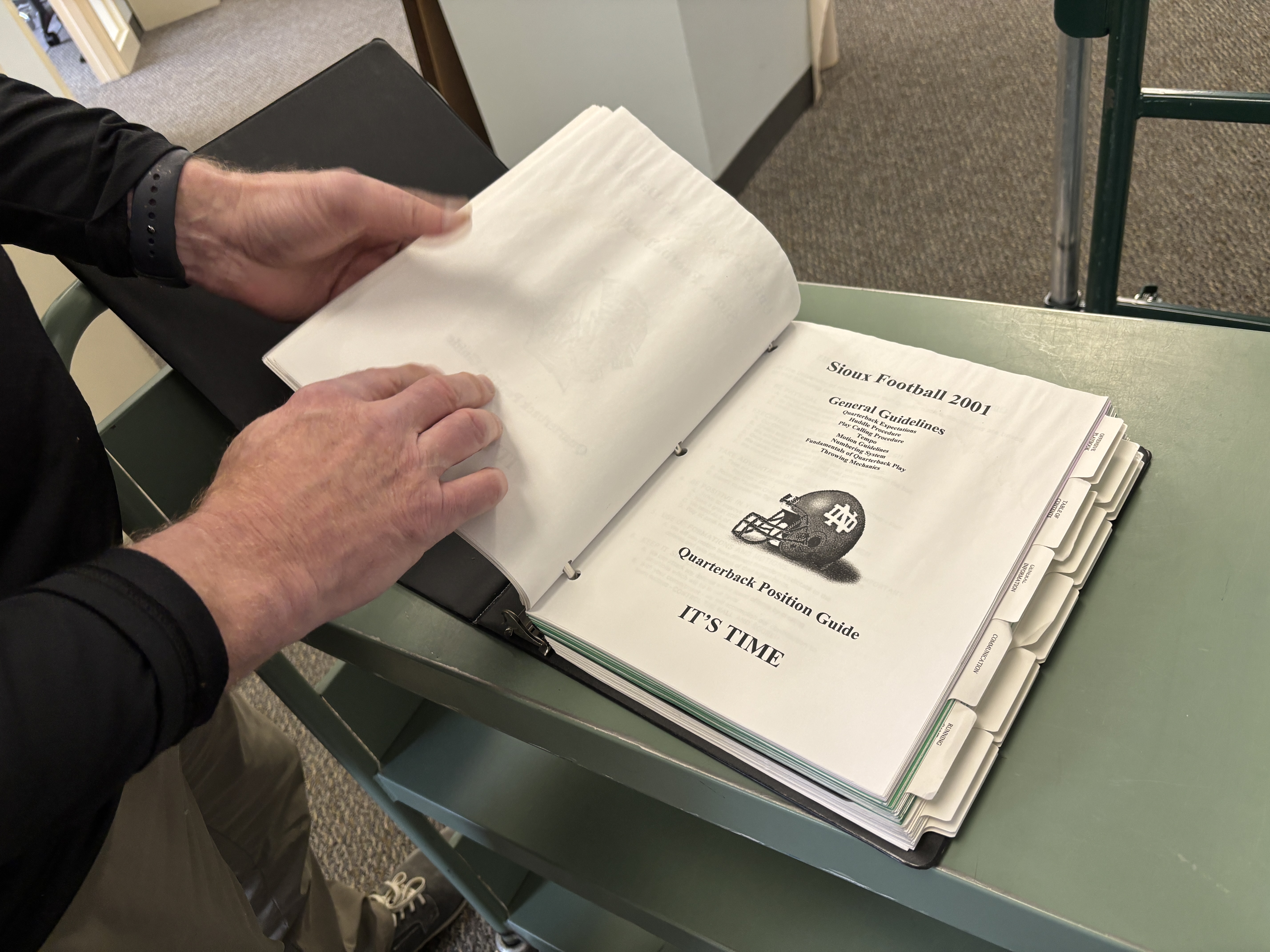Former UND Coach Dale Lennon Donates Historic Playbooks to State Archives
Posted 4/15/25 (Tue)

Former UND Coach Dale Lennon Donates Historic Playbooks to State Archives
Bismarck, N.D. — The State Historical Society of North Dakota has received a significant addition to its archives with the recent donation of a collection of historic football playbooks from one of the state’s most accomplished coaches.
Dale Lennon, current director of the State Historical Society of North Dakota Foundation and former head football coach at the University of North Dakota and Southern Illinois University, officially donated his personal collection of coaching playbooks spanning the years 1999 to 2015. The materials document some of the most successful years in UND football history, including the 2001 NCAA Division II National Championship season.
The playbooks encompass offensive and defensive schemes, special teams strategies, position-specific guidelines, team policies, and overall coaching philosophies. Developed collaboratively by the entire coaching staff, including individuals who have gone on to coach in the NFL and at top Division I programs, the collection reflects the dynamic evolution of college football over the years. Lennon, the winningest coach in UND football history, shared his appreciation for the opportunity to preserve these materials for future generations.
“It’s an honor to have a piece of my coaching journey preserved in the State Archives,” said Lennon. “These playbooks represent years of collaboration among a talented coaching staff and the dedication of exceptional student-athletes I was fortunate to coach. In time, they’ll serve as a snapshot of what college football was like during that era. More than just Xs and Os, these playbooks are historical records that capture the spirit of a team bound together by the pursuit of a championship.”
The State Historical Society called the donation a rare and exciting addition to its archives, offering valuable insight into North Dakota’s rich athletic history and cultural identity.
The materials are currently being cataloged by the State Archives and will be preserved for future public access, academic research, and educational use. For sports fans, historians, and the general public, this donation offers a rare chance to revisit one of the most iconic chapters in University of North Dakota football history.